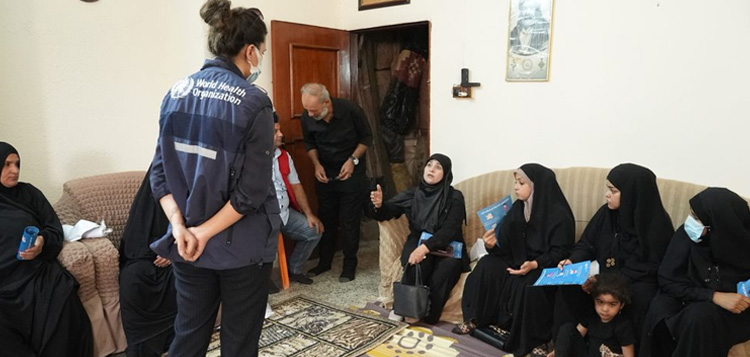
To transform the commitments of the Declaration of Astana into action, the WHO Regional Office has been building upon its long-standing family practice strategy to conduct an assessment of PHC at country level. In 2019, on World Health Day, WHO’s Regional Director for the Eastern Mediterranean Dr Ahmed Al-Mandhari announced the launch of the Primary Health Care Measurement and Improvement (PHCMI) initiative with the goal of assessing and improving PHC.
PHCMI strives to assess the current status of PHC within countries and use that assessment to inform improvement strategies to improve PHC.
The objectives of PHCMI are to:
establish a common language/framework through which to understand PHC strengthening;
identify and aggregate data that assess key aspects of PHC;
create tools that policy-makers, development partners and advocates can use to better understand and improve PHC, tailored to the needs of countries, including creating Vital Signs profiles and country profiles;
identify progress towards and key challenges for performance improvements in PHC;
develop PHC improvement plans and strategies as part of routine policy, planning, management, supervision and service delivery processes.

In line with the Declaration of Astana, the goals of the PHCMI initiative are to establish a set of tools which countries can embed in their routine assessments of PHC and use to identify gaps/challenges as guidance to developing PHC improvement strategies in order to support achievement of UHC and other health-related SDGs.
The UHC movement grew out of PHC and brings focus to needed elements including financial protection, access and quality. Yet, discussion on UHC often stops at WHAT – what package of services? For whom? From which providers? PHC continues to address the HOW – how to achieve provision of health services that are effective and equitable in a cost-effective and efficient way.


